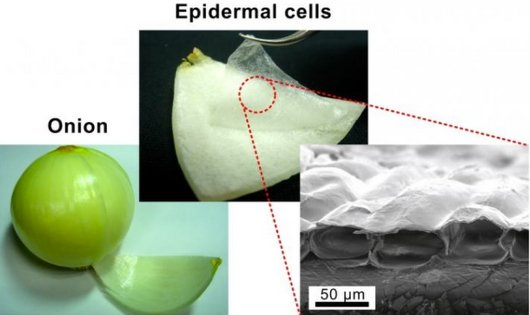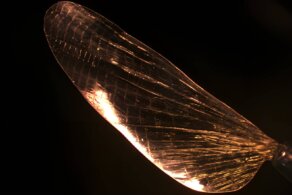Bioengineering has begun to leave us with surprising research, which could at some point make the leap to everyday reality. The latest news in this regard is the creation of artificial muscle from onions, obtaining the greatest movement capacity so far, compared to other materials.
Elastomer and fishing lines have been used to develop artificial muscles, but with the use of onions they have achieved greater capacity to bend and elongate. This has been done at the University of Taiwan, China, where bioengineering specialists used dead cells from the epidermis of the onion.
From these cells, the scientists removed hemicellulose, which is a plant compound characterized by its rigidity. They then applied a thin layer of gold to ensure that the material could conduct electricity. As a final step, they applied electric current, proving that the onion cells behave like muscle cells.
That is, when the voltage was increased, the artificial muscle made of onion cells contracted, and when the voltage was decreased, it expanded again. Seeing this, the scientists decided to create a kind of clamp by superimposing several layers of onion, and observed that their small artificial muscle was able to hold small objects.
Artificial onion muscles have the potential to revolutionize several fields, from soft robotics to regenerative medicine. In robotics, these muscles could be used to create more flexible and adaptable robots capable of performing delicate tasks that require precision and smoothness. For example, in the medical field, robots equipped with artificial onion muscles could be used to perform less invasive and more precise surgeries.
In addition, artificial onion muscles could also have applications in the textile industry. Due to their ability to stretch and contract, they could be used to create smart fabrics that adapt to the wearer’s needs. These fabrics could be used to create clothes that fit better to the body, or even to create garments that can change shape and style according to the user’s preferences.
Finally, it is important to note that the use of plant cells to create artificial muscles also has ethical and environmental implications. Compared to the use of animal cells, the use of plant cells is more sustainable and ethically acceptable. In addition, the process of creating artificial onion muscles is relatively simple and inexpensive, which could make these technologies available to more people worldwide. In summary, the development of onion artificial muscles has the potential to have a significant impact on several industries, and could help address some of the most pressing challenges we face today.



